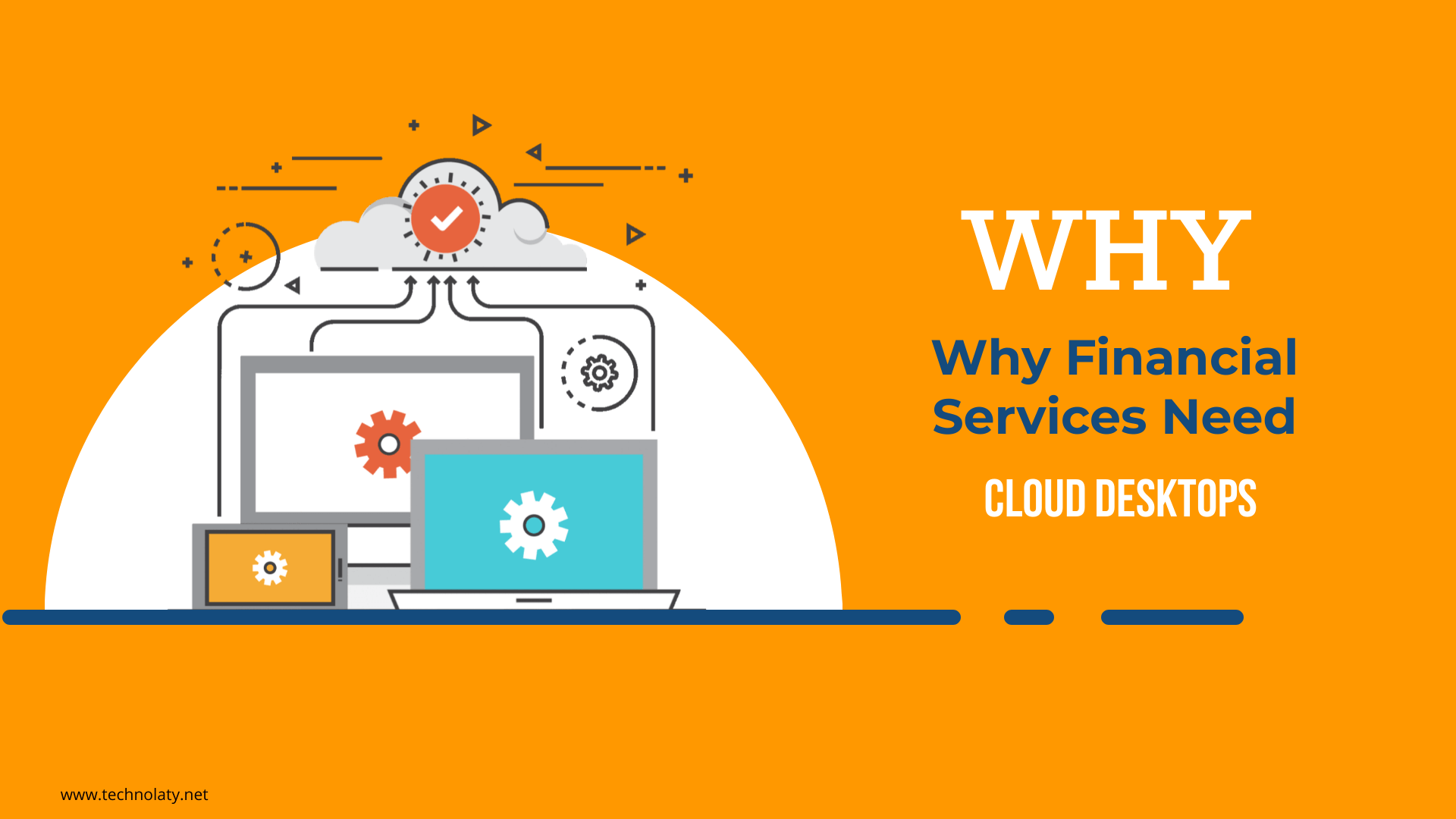Why Financial Services Need Cloud Desktops
Financial services organizations need to be fast and flexible enough to meet the needs of many professional and impatient clients. That means they can’t waste valuable time and resources using traditional and sophisticated IT in the background. An excellent place to start on this trip is to serve cloudy desktops.
Everyone understands the concept of a virtual desktop. All your files and applications are stored on your PC or laptop and are accessible whenever you sign in to that device. The desktop is the same concept. Virtual desktops do not attach to a specific device; they reside on servers and can be accessed from any portable computer or desktop.

Let’s dig into why FinServ companies need to switch to the cloud.
Why Financial Services Need Cloud Desktops
Security – VDI offers many security enhancements such as data loss prevention, patching simplification and secure remote access. FinServ companies are constantly dealing with compassionate customer information. As a result, the industry is also the most targeted cybercrime. With cloud VDI, sensitive data is stored locally in the most secure and unwanted cloud data centres, not high-risk areas.
Mobility – It’s no secret that today’s workers are increasingly moving, unlike the FinServ industry. Employees expect to be able to access data and applications anywhere, anytime and with any device of their choice. And happy employees produce more over time. Cloud-based desktops enable automated resolution and orchestration, which would allow organizations to provide the mobile or remote control that users expect while ensuring that data remains secure and compliant with Google Cloud.
Flexibility: Since the virtual desktop is not tied to a specific machine, users can access their custom desktop on any device. For example, if your tellers do not always work in the same window or branch, they can access the same desktop anywhere. Additionally, if a user’s machine does not work correctly, he does not lose work or waste time by setting up an entirely new device.
Legacy applications – Although new cloud and mobile applications are used in almost every industry today, and many FinServ companies still rely on tried and authentic legacy applications. Many of these are based on Windows. CAS empowers organizations to deploy and manage historical Windows-based applications in Google Cloud and local / cloud components. The integration of CAS’ API with Google Cloud Compute Engine, Output and Payment Manager also gives organizations complete control over their applications – legacy applications and everything – with a single, easy-to-use interface.
Remote Access: Virtual desktops are a secure and manageable way to remotely access. VDI opens up more opportunities for institutions roaming the changing landscape of remote, office and mixed staffing.
Business Continuity: VDI allows work to continue with minimal disruption with structured business continuity plans and disaster recovery scenarios. VDI supports continuity of operations despite the physical location by providing users with desktop information that does not change when a network connection is available. But with traditional desktops, performance may suffer if users do not have access to their devices, files and applications until a disaster or disruptive event is resolved.
Conclusion
VDI is a powerful tool that will improve your IT infrastructure as you roam the ever-changing business environment. Cloud desktops are a perfect fit for the FinServ industry. A goal built by Google Cloud, Cloud Automation Stack (CAS) enables organizations to utilize a cloud-based economy at the lowest possible cost-efficiently. In addition, CAS automation capabilities, orchestration, and deep integration with Google Cloud give administrators complete control over their GCP environment using a single interface. More importantly, CAS + Google Cloud frees up time to create competing resources and strategies needed to stay alive in today’s highly competitive FinServ world.






